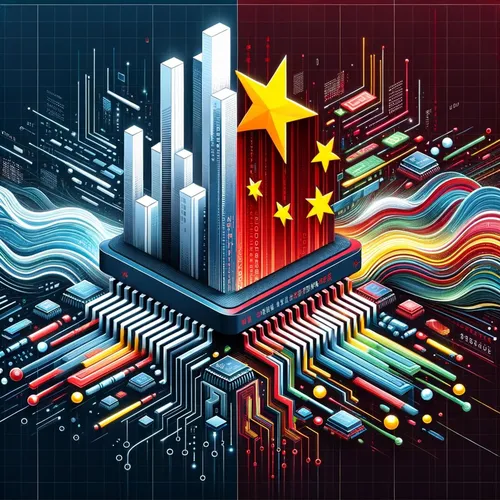Beijing Bytes: Salt Typhoon Shockwaves, AI Arms Race Heats Up, and Ting Spills the Tech War Tea!
- Author
- Quiet. Please
- Published
- Fri 05 Sep 2025
- Episode Link
- https://www.spreaker.com/episode/beijing-bytes-salt-typhoon-shockwaves-ai-arms-race-heats-up-and-ting-spills-the-tech-war-tea--67647420
This is your Beijing Bytes: US-China Tech War Updates podcast.
Listeners, buckle up because I’m Ting, your high-voltage, tea-spilling guide to the US-China tech war—where code is sharper than swords and the stakes? Oh, just global dominance. Let’s dig into what’s gone down these last two weeks, because Beijing Bytes waits for no one.
First up: the shockwave called Salt Typhoon. Picture this—a Chinese state-backed hacking campaign on international beast mode. According to The New York Times and echoed by cyber agencies from the US to Poland, Salt Typhoon went well past the usual digital peep show, snagging call records, law enforcement notes, even political communications. Not content to just eavesdrop, these hackers burrowed into power grids and telecom backbones, embedding what experts now believe could be destructive capabilities. The FBI and Justice Department are basically waving red flags everywhere—this isn’t cyberespionage as usual, it’s cyber-chaos potential. If you’ve made a phone call in America lately, you might be caught in the net, and yes, that includes people in the White House.
Meanwhile, international nerves are twitching. The US National Security Agency and more than twenty top cyber agencies issued a blunt warning about persistent Chinese state-sponsored attacks. Salt Typhoon wasn’t a solo act—groups like Operator Panda and RedMike have been running wild too. The Five Eyes alliance and European partners say, in diplomatic speak: brace yourselves, cyber-defenses are now mission critical.
But wait, there’s more. Washington just slid a new batch of tech restrictions onto the table—think tighter chip export bans. Nvidia and Alibaba are nervously watching their cross-Pacific business dances. Nvidia’s new Blackwell chips? China wants them badly, but US policy is tightening the nozzle. This is squeezing Chinese AI giants—Baidu, ByteDance, Alibaba—who are sprinting to design their own chips and AI infrastructure to avoid being left in the digital dust.
In response, Beijing has rolled out a national action plan for tech self-sufficiency—soaring investment into domestic AI, 5G, and semiconductor technologies. Huawei claimed an ecosystem “entirely independent of the United States.” There’s talk of supply-chain fortresses for critical telecommunications equipment and moves to take supply chain control from Singapore to home turf, especially by players like ByteDance.
On the tit-for-tat front, Beijing slapped anti-dumping tariffs on US fiber-optic products, a direct retaliation for new American sanctions on Chinese chemicals. Meanwhile, the US Data Security Program kicked in for all American businesses, expanding export controls into the digital realm. If your company’s data crosses borders, congratulations: you’re in the regulatory crosshairs.
On the industry side, impacts are rippling. BYD, China’s EV darling, may slash annual sales targets—signaling that even mainland demand is feeling the squeeze from global trade headwinds and tech wars. AI is the big exception here: SenseTime and Baidu both announced scorching growth, fueled by surging demand for China-native AI models and a new, home-grown Baige computing platform.
So what’s next on Ting’s forecast? The rules of global AI, data, and chips are being rewritten across firewalls and sanctions. Expect China to double down on homegrown innovation and the US to keep tightening the screws on tech exports and data sovereignty. As one expert put it, this isn’t a cold war, it’s a code war—and it’s getting hotter by the day.
Thanks for tuning in! Don’t forget to subscribe so you don’t miss a single byte. This has been a quiet please production, for more check out quiet please dot ai.
For more http://www.quietplease.ai
Get the best deals
